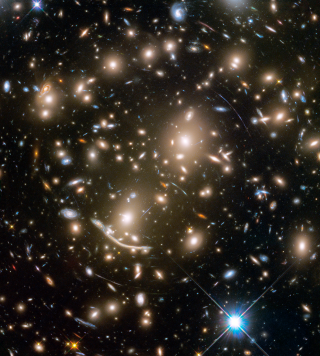Bibcode
Méndez-Abreu, J.; Sánchez, S. F.; de Lorenzo-Cáceres, A.
Referencia bibliográfica
Monthly Notices of the Royal Astronomical Society, Volume 484, Issue 3, p.4298-4314
Fecha de publicación:
4
2019
Número de citas
27
Número de citas referidas
26
Descripción
Galaxies are complex systems made up of different structural components
such as bulges, discs, and bars. Understanding galaxy evolution requires
unveiling, independently, their history of stellar mass and metallicity
assembly. We introduce C2D, a new algorithm to perform
spectro-photometric multicomponent decompositions of integral field
spectroscopy (IFS) datacubes. The galaxy surface-brightness distribution
at each wavelength (quasi-monochromatic image) is fitted using GASP2D, a
2D photometric decomposition code. As a result, C2D provides both a
characteristic one-dimensional spectra and a full datacube with all the
spatial and spectral information for every component included in the
fit. We show the basic steps of the C2D spectro-photometric fitting
procedure, tests on mock datacubes demonstrating its reliability, and a
first application of C2D to a sample of three early-type galaxies (ETGs)
observed within the Calar Alto Legacy Integral Field Area survey. The
resulting datacubes from C2D are processed through the PIPE3D pipeline
obtaining both the stellar populations and ionized gas properties of
bulges and discs. This paper presents an overview of the potential of
C2D + PIPE3D to unveil the formation and evolution of galaxies.
Proyectos relacionados

Evolución de Galaxias en Cúmulos
Las estructuras en el Universo, a todas las escalas de masa, se han formado de una forma jerárquica y principalmente producidas por fusiones de galaxias. Sin embargo, esta formación jerárquica de las galaxias está modulada por el entorno en el cual se crean y evolucionan. Mientras que las galaxias de campo presentan una evolución pasiva, los
Jairo
Méndez Abreu